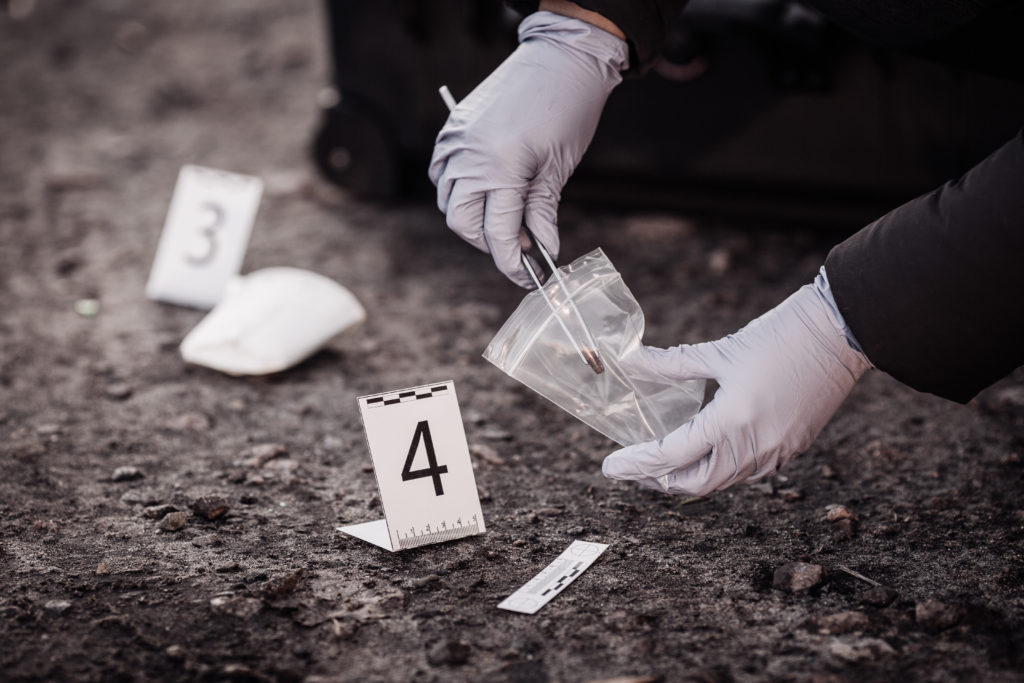
Those who pursue criminology vs a criminal justice degree will likely find that they study similar courses on terrorism and global crime, criminal statistics, analysis of court processes, current legal issues and more… but there are some key differences.
What is the difference between Criminology and Criminal Justice?
The main difference between criminology and criminal justice is simply education… and the types of jobs each degree appeals to. Criminal justice majors will likely find themselves studying extensively about juvenile crimes, police procedures, forensic science, police investigations and similar concepts.
Choose to major in criminology, on the other hand, and you’ll probably find yourself taking courses such as ethics, social responses to crime, psychopathology, rehabilitation, crime prevention and other related topics.
It’s easy to visualize the many diverse career paths that either degree will open up for a graduate. Below, we’ll break down the top careers in both criminal justice and criminology.
Careers with a Criminal Justice Degree
1. IRS Criminal Investigator
With a salary range of between $50,600 and nearly $83,000 annually, an Internal Revenue Services (IRS) criminal investigator is a lucrative career if you have a criminal justice degree. Because you’ll be focusing on those individuals who attempt to circumvent the country’s tax laws, it’s beneficial for you to be naturally good with numbers.
Additionally, training is required in order to work with the IRS including a nine-week-long criminal investigations training program, a physical fitness program and a health screening which you’ll have to repeat annually. You’ll also have to undergo training provided by the Federal Law Enforcement Training Center (FLETC) in Glynco, Georgia.
2. Loss Prevention Specialist
Theft is a big business and companies understand that they must constantly develop and implement methods of determent in order to succeed. With annual losses due to theft continue to rise — retailers lost nearly $50 billion in 2016 — and more creative, brazen and complex schemes being developed, the demand for loss prevention specialists will only increase.
With retail theft being such a big business, businesses also must protect themselves against threats from within. Intellectual property theft is on the rise as companies attempt to circumvent efforts to steal their ideas and plans. In many cases, it is their own employees who are responsible.
3. Customs Agent
The United States continues to face security issues and this trend shows no signs of abating. As a customs agent, it might be your responsibility to ensure that the goods that enter the country conform to the applicable rules, regulations and laws. Perhaps you’ll be part of a criminal investigation team that focuses on identifying and breaking up international crime rings.
Working as a customs agent is an ideal career choice if you have a criminal justice degree, but you want to work for a private company. A customs agent provides the opportunity to work in an ever-changing environment while interacting with a wide range of people. Strong analytical and organizational skills are crucial in this job.
Careers With a Criminology Degree
1. Forensic Psychologist
If you like shows like CSI, you may have seen the forensic psychologists who work closely with law enforcement to solve crimes and find the bad guys. While your life probably won’t be nearly as exciting and dramatic as those on television, a career as a forensic psychologist can still be rewarding and diverse.
According to the American Board of Forensic Psychology, a person in this field uses their knowledge in psychology and applies it to different legal issues and situations. In this role, you might find yourself using psychological screenings to evaluate applicants who are interested in becoming police officers, potential jurors for either the prosecutor or the defense or convicted criminals to ensure that they are mentally competent enough to stand trial.
2. Criminologist
As a criminologist, you examine certain aspects of crime as it relates to your particular industry, develop ways to prevent such behavior in the future and reduce the chances of convicted criminals engaging in crime again.
Working in this industry means you’ll gather data and statistics before using them to identify patterns. You’ll also look at the different types of crimes that are committed, the locations where they take place and the demographics related to those who do them. Depending on your particular job, this could take place either in the field, in an office or a combination of the two environments.
3. Private Investigator
A private investigator’s primary job often revolves around gathering information and checking facts for their clients or employer. You can do this by interviewing key people and conducting data-sensitive computer searches. In some instances, going undercover or conducting surveillance on certain people could be required.
Because the information that a private investigator gathers could be used a part of a civil or criminal investigation, it’s important that the rules regarding evidence in the relevant jurisdiction are always followed. It’s this requirement that often makes a job as a private investigator a good fit for someone who has experience in law enforcement.
How does Criminal justice and criminology relate?
A degree in either criminal justice or criminology provides you with a diverse selection of career options that would be difficult to find elsewhere.
Part of the appeal of these skills is that there is a place for them in nearly every type of organization in the entire country. Armed with either a criminology degree or criminal justice degree provides you with the kind of appeal and expertise that makes you stand out against other job applicants.



